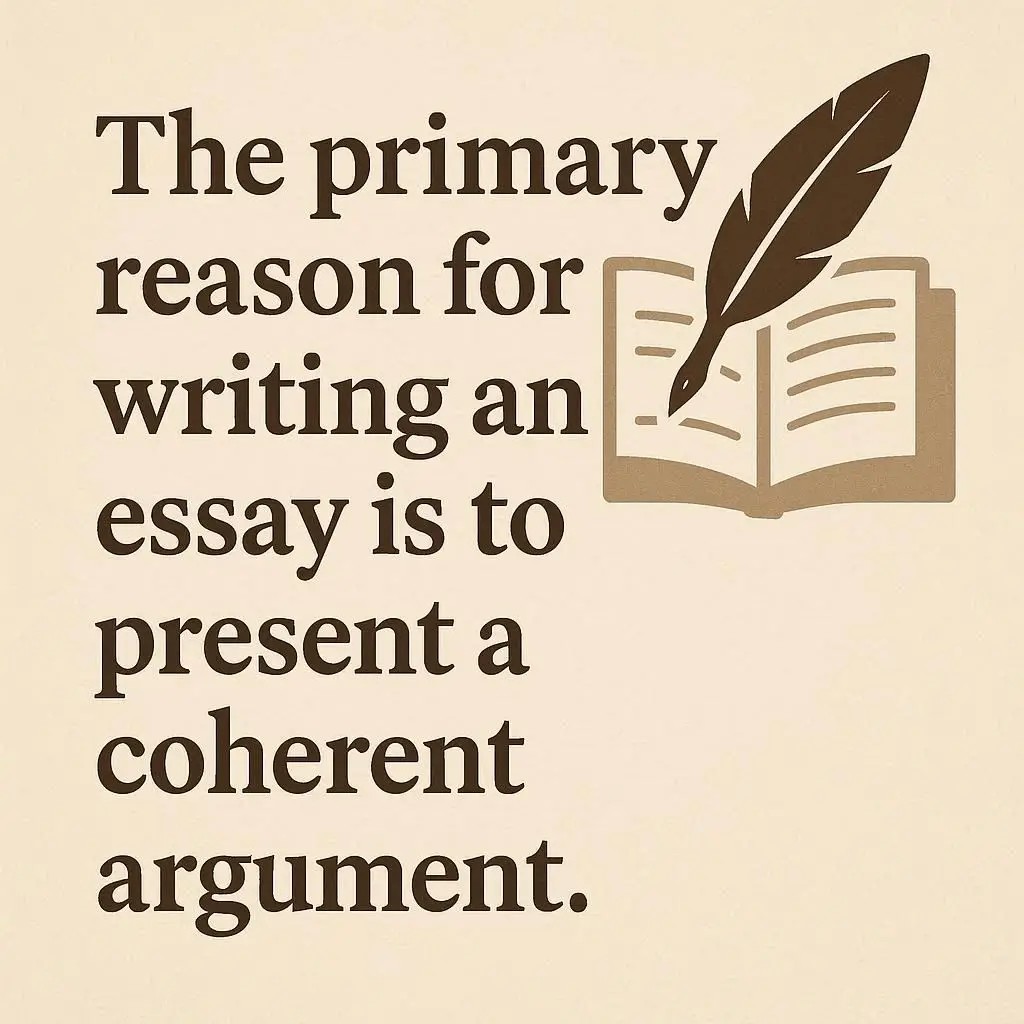What is the primary reason to write an essay?
The primary reason for writing an essay is to communicate and develop ideas in a clear, organized way—whether to inform, explain, persuade, or analyze a topic.
An essay serves several important purposes:
Expressing understanding – It shows your knowledge and comprehension of a subject.
Organizing thoughts – Writing forces you to structure your ideas logically.
Persuading or informing – Essays can be used to convince an audience of a viewpoint or to explain something in detail.
Demonstrating critical thinking – It helps you analyze information, evaluate evidence, and present well-reasoned conclusions.
In short, the main purpose is to present a well-supported argument or viewpoint in a way that’s meaningful to the reader.
The primary reason to write an essay is to present and support a central idea or argument through a structured and coherent piece of writing.
How Do Essays Communicate Ideas Effectively?
Essays communicate ideas effectively by using a clear and logical structure.
Introduction: This section hooks the reader and presents the essay's main argument, or thesis statement. The thesis acts as a roadmap for the entire essay.
Body Paragraphs: Each body paragraph focuses on a single supporting point that proves the thesis. It begins with a topic sentence and uses evidence (facts, examples, quotes) and analysis to back up that point.
Conclusion: The conclusion summarizes the main points and restates the thesis in a new way, providing a sense of closure and leaving a lasting impression on the reader.
This structure allows the writer to build a compelling case, guiding the reader step-by-step through their thought process.
What Are Different Types of Essays and Their Purposes?
Essays come in various forms, each with a distinct purpose:
Argumentative Essay: Aims to persuade the reader to agree with a specific point of view by presenting evidence and refuting counterarguments.
Expository Essay: Seeks to explain or inform the reader about a topic, using facts and evidence without expressing a personal opinion.
Narrative Essay: Tells a personal story or experience to make a point or convey a lesson.
Descriptive Essay: Focuses on vividly describing a person, place, or object to create a clear picture in the reader's mind.
Persuasive Essay: Similar to an argumentative essay but often uses emotional appeals in addition to logic to convince the reader.
How Does Essay Writing Develop Critical Thinking?
Essay writing is a powerful tool for developing critical thinking skills.
Analyze and Synthesize Information: You must take complex information from various sources and organize it into a new, coherent argument.
Construct a Logical Argument: You learn to build a solid case, connecting evidence to claims in a way that is logical and easy to follow.
Evaluate Evidence: You must assess the credibility of your sources and choose the most relevant and reliable information to support your points.
Consider Counterarguments: Writing an argumentative essay requires you to anticipate and address opposing viewpoints, which strengthens your own position and demonstrates a deeper understanding of the topic.
What Makes an Essay Persuasive or Informative?
An essay's effectiveness hinges on its purpose and the techniques used to achieve it:
Persuasive essays are effective because they use a combination of logical appeals (logos), emotional appeals (pathos), and ethical appeals (ethos) to influence the reader. They present a clear argument, support it with strong evidence, and acknowledge opposing views to build credibility.
Informative essays are effective when they are well-researched, organized, and clear. They rely heavily on objective facts, data, and expert opinions to explain a topic thoroughly.
The writer's goal is to present information in a neutral and unbiased manner, making it easy for the reader to understand a complex subject.












